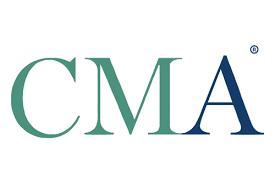Is CMA Worth It? Value, Career Impact, and ROI of the Certified Management Accountant
Is CMA Worth It? Value, Career Impact, and ROI of the Certified Management Accountant

Accounting
In an increasingly competitive financial and accounting landscape, many professionals are looking for ways to stand out and accelerate their careers. One such credential is the Certified Management Accountant (CMA) designation, awarded by the Institute of Management Accountants (IMA). But is the CMA worth it?
This article explores the value of the CMA designation in terms of career growth, skill development, salary potential, and industry recognition. We’ll break down the advantages and considerations of pursuing the CMA, helping you decide if it’s the right move for your future.
What is the CMA Certification?
The CMA (Certified Management Accountant) is a globally recognized certification that focuses on financial planning, performance, control, and decision support. Unlike certifications that emphasize auditing or taxation, the CMA is tailored toward management accounting and corporate finance.
Awarded by the Institute of Management Accountants (IMA), the CMA credential is widely respected in industries such as manufacturing, retail, healthcare, and finance, especially for roles related to budgeting, forecasting, internal control, and strategy.
The certification is comprised of two rigorous exam parts:
-
CMA Part 1: Financial Planning, Performance, and Analytics
-
CMA Part 2: Strategic Financial Management
You can also explore CMA topics in detail for Part 1 and Part 2.
Who Should Consider Earning a CMA?
The CMA is ideal for professionals seeking to:
-
Advance into management or executive roles in accounting or finance
-
Develop skills in strategy, planning, budgeting, and analytics
-
Work in corporate environments that value performance and decision-making abilities
-
Stand out in a competitive job market both locally and internationally
Common roles that benefit from the CMA include:
-
Financial Analyst
-
Corporate Controller
-
Budget Manager
-
Cost Accountant
-
Finance Manager
-
VP of Finance
-
CFO
Key Benefits of the CMA Designation
-
Career Advancement Opportunities
The CMA opens doors to managerial and leadership positions. Professionals holding the CMA are often considered for roles that involve decision-making, financial strategy, and operational oversight. Employers view CMA holders as professionals equipped with both technical finance knowledge and strategic insight.
-
Higher Earning Potential
According to the IMA’s Global Salary Survey, CMA-certified professionals earn up to 60% more than their non-certified peers. In regions like the U.S., Middle East, and parts of Asia, CMA holders report consistently higher salaries and faster career growth.
-
International Recognition
The CMA credential is globally respected, especially in multinational corporations. It holds strong value in the U.S., GCC countries (including Saudi Arabia, UAE, and Egypt), India, and parts of Europe. Its focus on strategic decision-making and performance management aligns with international corporate needs.
-
Strong ROI (Return on Investment)
While the CMA involves costs such as exam fees, preparation materials, and IMA membership, the long-term career benefits often outweigh the upfront investment. Many professionals recoup their investment within 1–3 years through promotions or salary increases.
-
In-Demand Skills for the Future
CMA holders gain expertise in key areas such as financial planning, analytics, internal control, risk management, and strategy. These are critical skills for finance teams in an era where data-driven decisions and performance optimization are paramount.
You can also explore CMA exam simulation resources to assess your preparedness.
Is the CMA Worth It in Specific Regions?
Let’s take a closer look at how the CMA is perceived and valued in major regions:
Middle East (Egypt, Saudi Arabia, UAE)
-
In Egypt, the CMA is one of the most respected international certifications for finance professionals. It boosts credibility and job opportunities, especially for those targeting multinational companies or financial leadership roles.
-
In Saudi Arabia and the UAE, where the job market is highly competitive, the CMA provides a clear edge. Many job postings in these regions prefer or require CMA certification, particularly for finance manager and controller roles.
United States
-
In the U.S., the CMA is highly regarded among employers who seek professionals capable of integrating accounting with business strategy. It’s often a stepping-stone to executive roles like VP of Finance or CFO.
India & Asia-Pacific
-
The CMA is growing in popularity across Asia, especially in India and Southeast Asia, where organizations are embracing global accounting standards and management practices. CMA-certified professionals are seen as assets to organizations undergoing digital and structural transformation.
CMA vs Other Certifications: CPA, ACCA, CFA
When considering the CMA, many professionals compare it with other designations like the CPA, ACCA, or CFA. Here's a brief comparison:
Choosing between these depends on your career goals. If you're targeting strategic financial roles inside companies (not investment firms), CMA is often the most aligned.
Challenges and Considerations Before Pursuing CMA
While the CMA offers substantial advantages, it’s important to understand the challenges:
-
Exam Difficulty: The CMA exam is comprehensive and demands thorough preparation, particularly in financial planning and decision analysis.
-
Time Commitment: Studying for both parts of the exam while working full-time requires discipline and time management.
-
Financial Cost: Between exam fees, IMA membership, and preparation materials, the cost may be a barrier for some, though scholarships and employer sponsorships are often available.
-
Experience Requirement: To earn the CMA, candidates must have two years of professional experience in management accounting or financial management.
Tips for Making the Most of Your CMA Journey
-
Plan Your Timeline: Allocate realistic time to prepare for both exam parts—typically 6–12 months.
-
Choose the Right Study Materials: Consider reputable CMA preparation providers that offer video lectures, practice exams, and performance tracking.
-
Join a Study Group: Peer support can help keep you motivated and accountable.
-
Leverage Employer Sponsorships: Some companies offer financial support for professional development—don’t hesitate to ask.
-
Gain Relevant Experience: Seek out roles in budgeting, analysis, or financial planning to fulfill the work experience requirement and apply your knowledge practically.
CMA Salary Trends by Country & Gender
Here are some recent salary statistics for CMA professionals:
Women CMAs report closing the pay gap more quickly than non-certified women in finance roles, highlighting the CMA's impact on promoting equity.
You can also explore the differences between CMA and CPA.
If you're a finance or accounting professional aiming for leadership roles, strategic decision-making responsibilities, and global opportunities, the CMA is absolutely worth considering. It not only boosts your earning potential and credibility but also equips you with the tools to drive financial performance in any organization.
While the certification requires time, money, and effort, the long-term return on investment both professionally and financially is substantial. Ultimately, the CMA is not just a certificate it’s a career accelerator.
If you’re ready to elevate your skills and credentials in today’s competitive business environment, the CMA can be a powerful step forward.
Related Articles
Explore Articles on Finance, Accounting, and Career Growth


